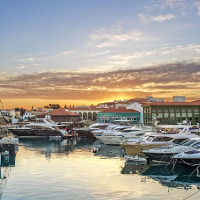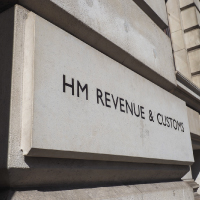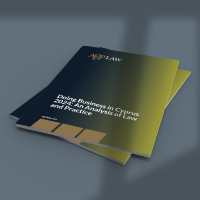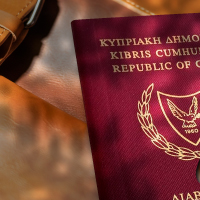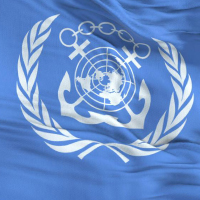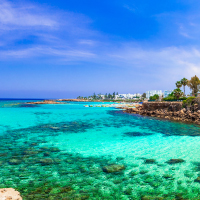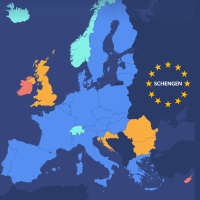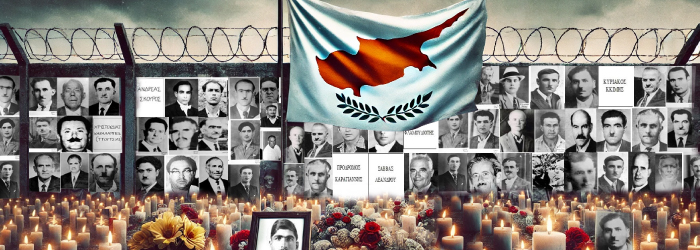
A Historical and Current Analysis
The year 2024 marks the 50th anniversary of the brutal military Turkish invasion and occupation of north Cyprus that has left an indelible mark on the island’s history and its people. This article aims to explore the events leading up to the invasion, the tragic loss of life, the atrocities committed, the issue of missing Greek Cypriots, the discovery of mass graves, and the current status of Cyprus. Additionally, we will question the role of the international community, the European Union (‘EU’), and the United Nations (‘UN’) in addressing the invasion and the ongoing presence of Turkish soldiers in Cyprus and call for greater international support to resolve the situation.
The Turkish Invasion. Background and Execution
On July 20, 1974, Turkey launched an illegal military operation, code-named “Operation Atilla”, allegedly to protect the Turkish Cypriot minority following a Greek-led coup aimed at uniting Cyprus with Greece. This invasion was met with widespread devastation. Turkish forces attacked from the air and sea, quickly gaining control of a significant portion of the island, including key and historical cities and villages such as Kyrenia, Famagusta, Morphou, Lapithos, Karavas, Lefka, Rizokarpaso, Kythrea, Lefkoniko, Akanthou, Bellapais, Davlos, Kalograia, Lysi, Pigi and many other villages.
These areas, once vibrant centers of Greek Cypriot culture and life, were forcibly taken over, leading to significant demographic changes and the displacement of their original inhabitants.
Casualties and Human Suffering
The war resulted in the death of an estimated 4,000 Greek Cypriots. The Turkish army’s military invasion caused immense suffering, with numerous accounts of brutality and violence against civilians. Villages were razed, homes destroyed, and families torn apart. Many women were subjected to sexual violence, and thousands of people were displaced from their homes, creating a refugee crisis that persists to this day. The psychological trauma inflicted on the survivors is a testament to the brutality of the invasion.
The Aftermath of the Invasion
The 1974 invasion and subsequent occupation of Northern Cyprus had profound and lasting impacts. Over 200,000 Greek Cypriots were displaced from their homes, becoming refugees in their own country. Entire communities were uprooted, and the social fabric of the island was torn apart. The economic consequences were also severe, with the loss of agricultural land, businesses, and infrastructure.
The invasion and occupation also led to the creation of a heavily militarized zone along the Green Line, which has further entrenched the division of the island. The continued presence of Turkish troops, estimated to be around 30,000, remains a contentious issue and a major impediment to peace.
Missing Greek Cypriots and Mass Graves
One of the most haunting aspects of the invasion is the issue of the missing Greek Cypriots. Approximately 1,500 Greek Cypriots disappeared during and after the invasion. Families have spent decades in anguish, not knowing the fate of their loved ones. Over the years, mass graves have been discovered, revealing the remains of many Greek Cypriot soldiers and civilians who were executed during the invasion. These discoveries, while providing some closure, have also highlighted the atrocities committed during the war. The Committee on Missing Persons in Cyprus (CMP), a bicommunal body established in 1981, continues its work to identify remains and bring answers to grieving families, but the process is slow and fraught with challenges.
Human Rights Violations and Legal Challenges
The Turkish invasion and occupation have been accompanied by numerous human rights violations. The displacement of Greek Cypriots and the appropriation of their properties constitute a violation of their rights to property and home. The European Court of Human Rights has issued several rulings against Turkey, recognizing the rights of displaced Greek Cypriots and ordering compensation. However, compliance with these rulings has been inconsistent, and many property disputes remain unresolved.
In addition to property rights, the issue of missing persons continues to be a painful legacy of the invasion. The discovery of mass graves and the identification of remains have provided some answers, but many families are still waiting for closure. The CMP’s work, though vital, is hindered by limited resources and political sensitivities.
The Illegal Occupation of Northern Cyprus
The invasion led to the establishment of the self-declared Turkish Republic of Northern Cyprus (TRNC) in 1983, recognized only by Turkey. This entity covers about 36% of the island’s territory and is considered illegal under international law. The UN Security Council has repeatedly condemned the declaration of the TRNC and called for its non-recognition by other states. Despite this, the TRNC has persisted, supported economically and militarily by Turkey.
Illegal Development and Property Disputes
One of the most contentious issues resulting from the invasion is the illegal development of properties in Northern Cyprus. Greek Cypriots who fled the north left behind homes, businesses, and land, which have since been appropriated and developed without their consent. Many of these properties have been sold to foreign investors, leading to complex legal disputes. The European Court of Human Rights (ECHR) has ruled on several cases, in favour of Greek Cypriots, but enforcement remains a significant challenge. The illegal development intensifies tensions and complicates efforts toward a negotiated settlement.
Today’s Status of Cyprus
Today, Cyprus remains a divided island. As aforementioned, the northern part, approximately 36% of the territory, remains under the control of the self-declared Turkish Republic of Northern Cyprus, recognized only by Turkey. The southern part is the internationally recognized Republic of Cyprus, a member of the EU since 2004. The division is maintained by a UN buffer zone, commonly known as the Green Line, which runs from east to west of Cyprus and through the capital, Nicosia, making it the last divided capital in Europe.
The Green Line is patrolled by the United Nations Peacekeeping Force in Cyprus (UNFICYP), one of the oldest peacekeeping missions in the world. Despite numerous rounds of negotiations and peace talks, the island remains divided, and the presence of Turkish troops continues to be a significant barrier to peace.
The Role of the United Nations
The UN has been involved in peacekeeping efforts in Cyprus since 1964. Following the 1974 invasion, the UN deployed additional forces to monitor the ceasefire and maintain the buffer zone. Over the years, various UN-led initiatives and peace talks have aimed to find a comprehensive solution to the Cyprus problem, but a lasting resolution is yet to be reached following Turkey’s unwillingness to reach a settlement.
Questioning the International Community and the EU
The ongoing presence of Turkish soldiers in Cyprus raises serious questions about the role of the international community and the EU. How can the world accept a situation where a sovereign EU member state is partially occupied by a foreign military? The EU, which prides itself on promoting peace, democracy, and human rights, has been criticized for not taking a more assertive stance against the Turkish occupation. The EU’s approach to the Cyprus issue is marked by a delicate balancing act while the Republic of Cyprus is a full EU member.
The Need for International Support
It is imperative for the international community, including the UN and the EU, but also the USA, to intensify their efforts to resolve the Cyprus occupation by Turkey. This includes applying diplomatic pressure and/or sanctions on Turkey to withdraw its troops and supporting initiatives that promote dialogue and reconciliation between the Greek and Turkish Cypriot communities.
Furthermore, there needs to be a concerted effort to address the humanitarian issues resulting from the invasion, such as the losses of the refugees and the search for the missing.
The international community should also take a firmer stance against the illegal development of properties in Northern Cyprus. Protecting property rights and ensuring justice for displaced Greek Cypriots is crucial for building trust and fostering reconciliation. This can be achieved through more forceful legal mechanisms and international cooperation.
The Role of Regional and Global Actors
The Cyprus issue is not only a local conflict but also a geopolitical one, involving regional and global actors. Turkey’s strategic interests in the Eastern Mediterranean, including Cyprus’ energy resources and maritime boundaries, influence its stance on Cyprus. Greece, as a guarantor power and a close ally of the Republic of Cyprus, plays a crucial role in supporting its position.
The EU’s involvement is significant and should be enhanced. As a member state, Cyprus should benefit from the EU’s political and economic support. Although the EU has consistently called for a settlement based on UN resolutions and EU principles, however, its ability to influence Turkey’s actions seems to lack powerful initiatives (contrary to what the EU, UN and USA did against Russia with the war in Ukraine).
The Path Forward. International Responsibility and Action
The Cyprus conflict is a test of the international community’s commitment to justice, human rights, and the rule of law, that now goes back 50 years. The continued occupation of Northern Cyprus and the presence of Turkish troops are unacceptable violations of international norms. The international community, including the UN, the USA and the EU, must take stronger actions to address these issues.
Financial and trade-related penalties against Turkey to put economic, trade, political, and other diplomatic pressure on it, with an aim to withdraw its army and troops from Cyprus and comply with international rulings is now more essential and mandatory than ever. Additionally, supporting confidence-building measures and reconciliation efforts can help bridge the divide between the two communities. Ensuring that property rights are respected and that displaced persons receive justice is also crucial for any sustainable solution.
Conclusion
Fifty years after the Turkish invasion of Cyprus, the island remains a symbol of unresolved conflict and international indifference. The suffering of the Greek Cypriots, the ongoing division, and the presence of Turkish military troops are stark reminders of the need for a just and lasting solution. The international community, the EU, USA and the UN must not turn a blind eye to this ongoing injustice against Cyprus, a sovereign democratic state. Instead, they should renew their commitment to supporting Cyprus and ensuring that the island can finally achieve peace and reunification.
The Cyprus conflict, while deeply rooted in history, still is a contemporary issue that demands immediate and concerted action. The international community must rise to the occasion, recognizing the urgency and gravity of the situation.
A Plea to the International Community
As we mark the 50th anniversary of the Turkish invasion and occupation of Cyprus, we stand before you, the International Community, with a heavy heart and a plea for justice. Our island remains divided, with over 200,000 Greek Cypriots displaced from their homes, and the enduring presence of foreign troops violating our sovereignty. The international community must take decisive action to stop Turkey’s unlawful occupation of Northern Cyprus.
Turkey’s territorial boundaries end at its’ own coastline, not in Nicosia. Allowing the continued occupation and the presence of Turkish troops in Cyprus undermines international law and the sovereignty of an EU member state. It is imperative that the global community enforces these boundaries, ensuring that Turkey’s reach does not extend beyond its own boundaries, thereby upholding justice and supporting a peaceful resolution for Cyprus.
We mourn the thousands of lives lost and the missing whose families still seek closure. We ask the international community to no longer turn a blind eye to this ongoing injustice. It is time to intensify efforts, apply pressure on Turkey to withdraw its troops, and support our search for the missing and the reclamation of our properties. Your decisive action is essential for a just and lasting resolution, allowing us to heal and build a unified, peaceful Cyprus for all its people.





